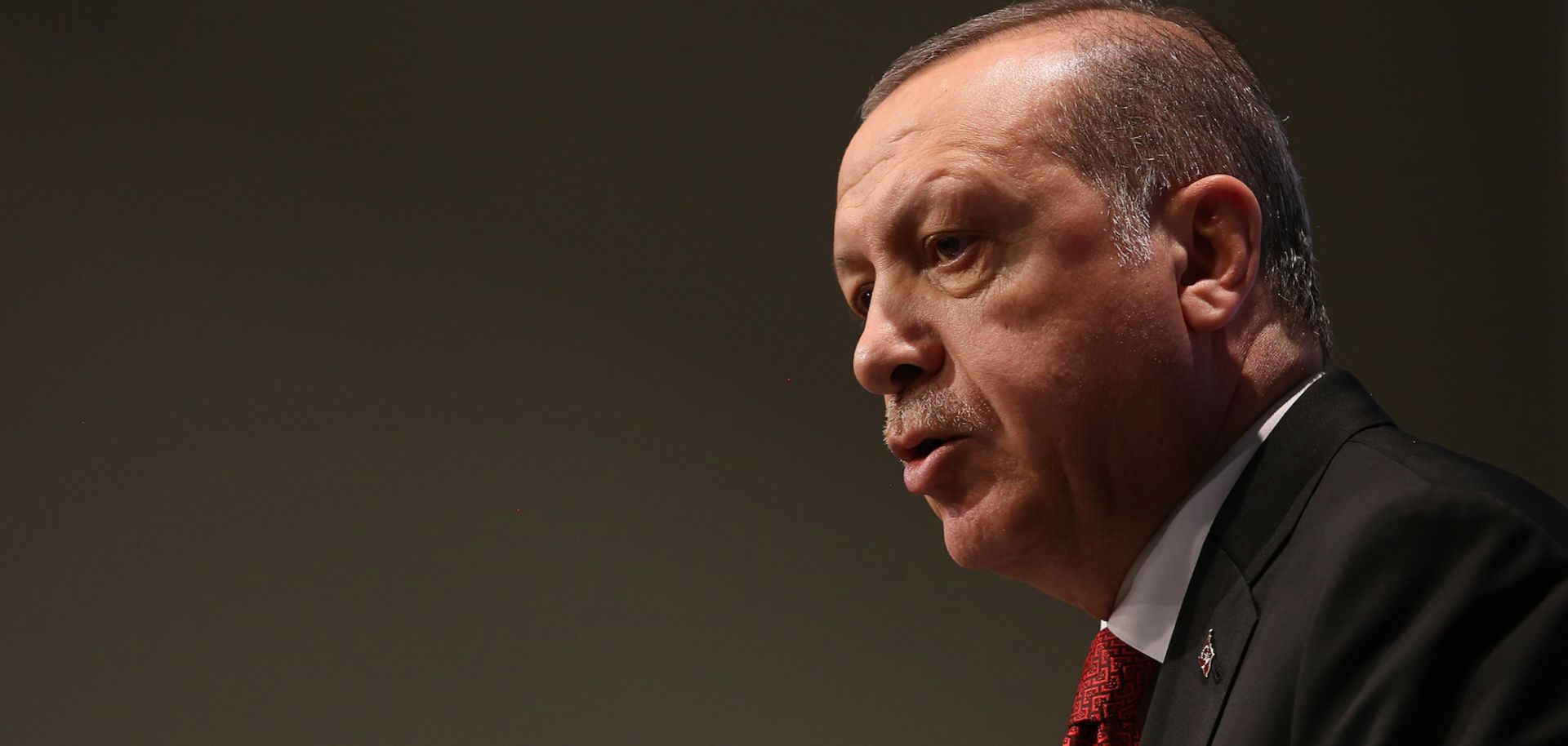GLOBAL PERSPECTIVES
Under Erdogan, Turkey's Foreign Policy Is a One-Man Show

Apr 22, 2018 | 14:44 GMT

Recep Tayyip Erdogan, president of Turkey, speaks at the conclusion of the G-20 economic summit in Hamburg, Germany, during July 2017. G-20 leaders agreed somewhat on trade policy but disagreed on climate change policy.
(SEAN GALLUP/Getty Images)
Highlights
- While Turkey previously based its foreign policy on the suggestions of the armed forces, the civilian government and the foreign ministry, President Recep Tayyip Erdogan now single-handedly dictates the country's actions on the global stage.
- Erdogan's style of foreign-policy decision-making, a marked departure from the pragmatic approach of his predecessors, probably will pay off for the president in the snap elections he called for this summer.
- In the long run, however, it will damage the relationships with the United States and Europe that previous Turkish leaders worked hard to cultivate.
Subscribe Now
SubscribeAlready have an account?
